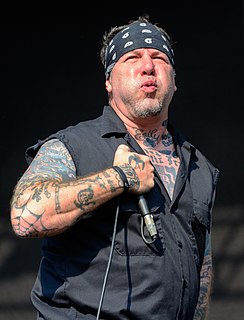A Quote by David Lowery
It's something that you pick up at a history class in college, the idea that history and time is something to which we can't even hold a candle to. We, as human beings, are just a small element in the overarching sweep of narrative history. That really had a profound effect on me, that realization.
Related Quotes
They don't really focus on that history here in America. I remember growing up as a kid, history class was very washed-over. They didn't really get into the gritty bits of slavery. It's a very, very small section in the history books. It's not something they really touch on directly with American curriculums.
The Greeks really believed in history. They believed that the past had consequences and that you might be punished for the sins of your father. America, and particularly New York, runs on the idea that history doesn't matter. There is no history. There is only the never-ending present. You don't even have your family because you moved here to get away from them, so even that idea of personal history has been cut at the knees.
If, in schools, we keep teaching that history is divided into American history and Chinese history and Russian history and Australian history, we're teaching kids that they are divided into tribes. And we're failing to teach them that we also, as human beings, share problems that we need to work together with.
After school, I went to Damascus to study law and history, which I didn't really like. I didn't like history, in particular. In Syria, the regime was trying to present to us a distorted version of the past. Assad was shown as the father of history. So I decided to shift to film, which was something I had always loved as a teenager.
Very few college professors want high school graduates in their history class who are simply "gung ho" and "rah-rah" with regard to everything the United States has ever done, have never thought critically in their life, don't know the meaning of the word "historiography" and have never heard of it. They think that history is something you're supposed to memorize and that's about it. That's not what high school, or what college history teachers want.
History was not a matter of missing minutes on the tape. I did not stand helpless before it. I hewed to the texture of collected knowledge, took faith from the solid and availing stuff of our experience. Even if we believe that history is a workwheel powered by human blood -- read the speeches of Mussolini -- at least we've known the thing together. A single narrative sweep, not ten thousand wisps of disinformation. (82)
I definitely love history. I'm not formally trained or educated in history, but you could say I did go back to college in 2008 to do Untold History of the United States. That took five years. Co-author Peter Kuznick has been teaching history for something like 35 years, at American University and other places. His group of researchers brought me into contact with a lot of books.
The introduction of the Christian religion into the world has produced an incalculable change in history. There had previously been only a history of nations--there is now a history of mankind; and the idea of an education of human nature as a whole.--an education the work of Jesus Christ Himself--is become like a compass for the historian, the key of history, and the hope of nations.




































